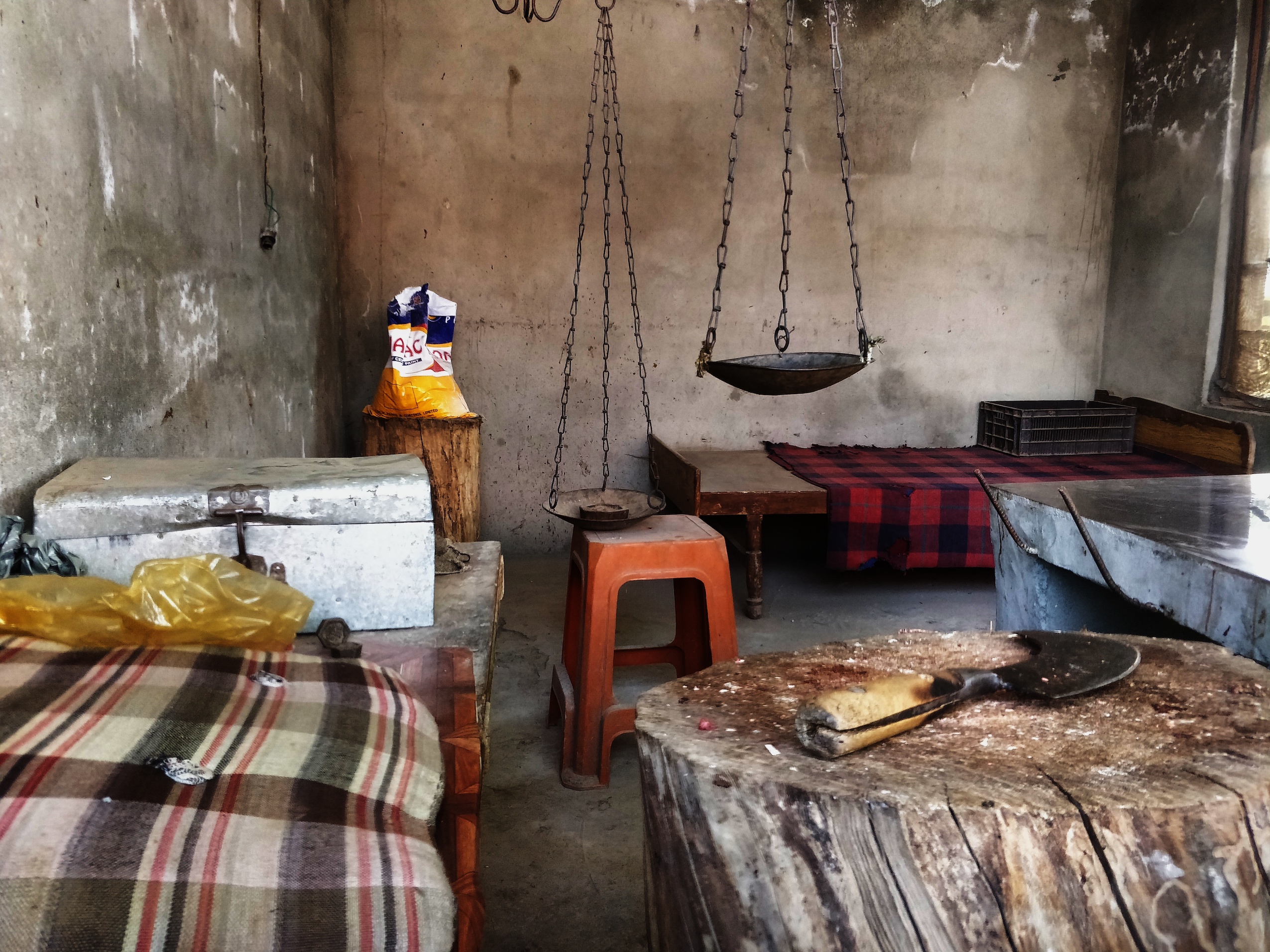Some 8 kilometres away from central Kashmir’s Budgam district is Chitru Danger Pora, where a female butcher runs a meat shop. Kashmir, with its male-dominated patriarchal society, scarcely permits women to work in a field that they speculate is for men only.
But this ‘first female butcher’ has broken stereotypes by opening a meat shop in her village. Chitru is surrounded by hundreds of brick kilns where thousands of non-locals labour during the summer season. After work, many head to the small market in the village to buy meat.
Raja, 46, opened her meat shop a few years ago to better strengthen the finances of her family. Both Raja and her husband work at two different meat shops located in different villages in Budgam district. Raja regulates the shop from Chitru, which is located near their house, and her husband works at another shop outside the village. Both encourage and support each other to generate a monthly income to support and educate their children.
Raja chops up the meat into perfectly sized square pieces, which is considered the feat of an accomplished butcher. Her shop is small, and includes a portable bed for her to sit, a weighing scale, a lanky pointed knife, and some hooks.
Also read: Heemal, the Unsung Poetess of Kashmir
I asked her how she started her career as a butcher. “When we started having financial troubles, my husband was the the sole earner. One day, I asked my husband about helping out by opening a second shop near the house. At first, he was not for the idea but came around after I convinced home some more as thing were getting more and more difficult because of the three-year lockdown in Kashmir,” she said.
“My husband slaughtered farm animals at home, and I started to learn how to slaughter and chop meat into perfect square pieces. It took me months to comprehend how things work, as running a butcher shop is not a simple responsibility. I had to learn how to address and negotiate with customers,” she said.

“When a woman learns to earn, it feels like the entire world can fit into her palm.Every woman struggles as their husbands don’t give them a basic amount of money, but it is eventually on our shoulders to be able to earn.”
“The feeling of having money and being self-sufficient is a boost to oneself. I not only handle things for myself, but for my family as well. When I have money in my pocket, I don’t have to ask my husband for money. My husband never asks me where I spend my money nor does he know how I manage my kitchen. I spend hours at my shop, and in between these hours, I come back home to check in with my kitchen as I have to cook for my family as well. I manage both at a time to join two different ends together. But this would not have been possible without the support of my husband as he assisted me, facilitated me and taught me to be a perfect butcher.”
Also read: ‘Main Khud Sey Ek Ladai Hoon’: Life in Kashmir
“There is not a single woman in this field as they recognise this job for men only, but women can do anything they put their mind to. In the beginning, it was difficult because I was timid and every person who strolled by my shop would stop their cars, and bikes and stare at me – which made me very uncomfortable. This was because it was a different scenario, men never expect women to choose this sort of work that they believe is made only for them. Both men and women would watch me for hours to see what I am doing,” said Raja.
“My husband and I wake up early and go to our farm, where we pick the appropriate animals for slaughtering. He then divides it into two parts, one that I keep for my shop and the rest that he takes with him for his shop. Sometimes after returning home from work, we discuss who earned more that day.”
Featured image: Provided by the author

